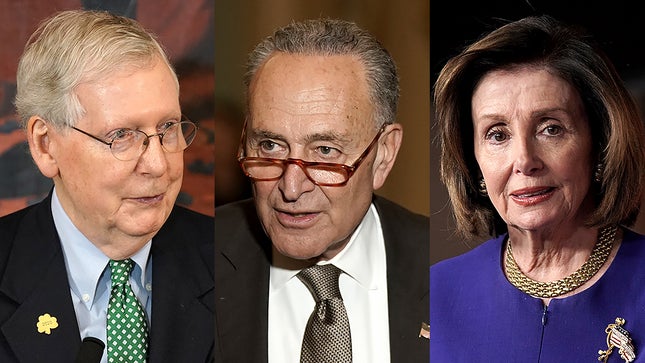Coronavirus Stimulus Plan Update
Negations between the Trump administration and Congress has yielded a stimulus package worth more than $2 trillion in spending and tax breaks to help American families – and corporations, battle the Coronavirus pandemic. But many are still curious as to what the package will include, and if it will benefit millions of taxpayers. Here are some of the key points you need to know.
Who Benefits From The Plan?
Large Companies and Corporations
The plan will include $500 billion in loans and assistance to large corporations, states, and cities, according to the most recent draft. Democrats insist there will be some strings attached for these companies. Corporations receiving the loan are banned from buybacks through the term of the loan, plus 1 additional year. There are also limits on executive bonuses and steps to protect workers. In a nutshell, the package will largely benefit the hotel, retail, restaurant, and airline industries. But what about oversight? Who will make sure these funds are being used to the benefit of employees working in this industries. The Treasury Department stated a new Treasury inspector general would oversee the lending program and the terms of the loan and other aid would need to be disclosed.
Airlines
Struggling U.S. airlines would be eligible to receive federal loans and direct cash assistance if they are willing to give an option for an ownership stake to the government. The program allocates $25 billion to passenger carriers and $3 billion to airline contractors providing ground staff such as caterers, while cargo haulers would see $4 billion. The addition of direct cash relief — earmarked specifically for payrolls — was sought by airline and industry unions, which feared massive job losses if loans were the only option. The S&P Supercomposite Airlines Index advanced further, rising as much as 17 percent on the day, before closing up 9.8 percent.
The legislation doesn’t include emissions limits for airplanes that were sought by House Democrats, Senator Pat Toomey, a Pennsylvania Republican, said on a press call. Other transportation winners include rail and transit operators. Amtrak would get $1.02 billion to cover coronavirus-related revenue losses and support state-funded routes. State and local transit agencies would get $25 billion for operating and capital expenses.
Small businesses
The bill carves out more than $350 billion in aid for small businesses, much of which would be in loans through the Small Business Administration and banks, guaranteed by the federal government. The loans would be forgiven provided the businesses meet certain requirements, including limiting reductions in pay and layoffs, though with more flexibility for employers than the original Senate bill.
Industry advocates previously said loans weren’t enough, especially for the smallest outfits, although some expressed more optimism on Wednesday. An instant cash injection is the only way to save them from failing, according to the Small Business Majority.
Now, the part you’ve been waiting for- Taxpayers and Self Employed
The package would provide direct payments to lower- and middle-income Americans of $1,200 for each adult, as well as $500 for each child.
Democrats were able to secure a change from a previous version that allows low-income taxpayers to get the full $1,200 payment. The initial plan would have given smaller checks, or in some cases, no money at all, to very-low income people.
Unemployment insurance payments were boosted and recipients would be eligible to receive those funds for an average of four months, up from three in the prior GOP plan. It also would extend eligibility to the self-employed and workers in the gig economy such as drivers for Uber Technologies Inc.
Money for hospitals under health-care ‘Marshall Plan’
The legislation calls for $117 billion for hospitals and veterans’ health care, as well as $16 billion for personal protective equipment, ventilators and other medical supplies for federal and state response efforts. It also includes $11 billion for vaccines, therapeutics, diagnostics and other medical needs, and at least $250 million to improve the capacity of health-care facilities to respond to medical events, according to a summary by the Senate Appropriations Committee.
Mortgage relief for wide swath of borrowers
Many U.S. homeowners and businesses hit hard by coronavirus could get relief from making their monthly mortgage payments through the bill.
Borrowers with loans insured by government agencies such as the Federal Housing Administration and the Department of Veterans Affairs would be eligible for forbearance. Consumers whose mortgages are backed by Fannie Mae and Freddie Mac would also be eligible to skip payments.
